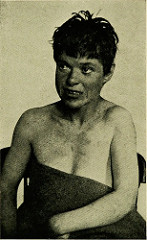The Sleep in America polls – conducted on behalf of the National Sleep Foundation report that about 20% of Americans get less than 6 hours of sleep on average, and the number of Americans that report that they get 8 hours has continued to decrease.
Recent evidence shows that chronic sleep deprivation increases risk of early death. Studies show that people who get less sleep are at increased risk for heart attacks and disease. Research also shows a link between chronic sleep deprivation and overweight and obesity.
The affect on our daily lives was demonstrated in the 2005 Sleep in America survey. Twenty-eight percent, 28%, of working adults said they had missed work, events and activities, or made errors at work because of sleep-related issues during the three months prior to the survey.
Laboratory studies have confirmed this impact on performance. In one experiment, 16 young adults were allowed only five hours of sleep for seven nights. As the week wore on, the volunteers ability to perform simple tasks decreased markedly.
It goes without saying that many more sleep related problems go unreported. Lifestyle choices and the stresses associated with modern 24/7 lifestyles are the most common causes of sleep problems, especially of insomnia.
But many disturbed sleep states are directly related to psychological issues, unresolved grief or loss issues, post traumatic stress disorder, anxiety disorders and depression. As a mental health specialist, most of my clients show up in my office unable to complete a full night’s sleep, which means they never reach REM sleep and experience the restorative effects of healthy sleep. Ineffably, their sleep state improves as their mental state improves.
So the lack of sleep is often driven by some unfinished psychological business rather than the lack of sleep causing the unfinished business!
Insomnia, the most common sleep complaint is not defined by total sleep time but by trouble falling or staying asleep. It is the inability to obtain sleep that is sufficiently long enough or good enough to feel rested the next day.
Depression has been shown to be a cause of insomnia; however, for many people, untreated insomnia may be a risk factor for depression. It’s the classic chicken and egg question.
Many insomniacs may have a condition called hyperarousal – it’s like they’re always on alert, so they rarely sleep. There is overwhelming evidence that many insomniacs have a constitutional predisposition to be hyperaroused 24 hours a day. They have trouble sleeping, then they’re fatigued, washed out, have trouble concentrating during the day but they’re not sleepy. They never take naps, because the same thing happens – they can’t sleep during the day either.
There seems to be a genetic component to both hyperarousal and insomnia. Neurological scans show differences between the brains of insomniacs and non-insomniacs.They usually have a family history of insomnia and many people have had it since childhood. It takes very little for them to lose sleep – a test the next day, an upcoming trip. They suffer insomnia for what seems like very trivial reasons, but it’s probably constitutional. They are very fragile sleepers because they are predisposed to developing insomnia.
One of the most common symptoms of PTSD is sleep disturbance reflected in nightmares, inability to go to sleep or stay asleep, heart irregularities during the night, and sleep walking/talking. Same is true for anxiety or sometimes depression.
For more on this pervasive problem, watch this: http://www.HealthAndWealthReporter.com/Sleep_Disturbances.html

